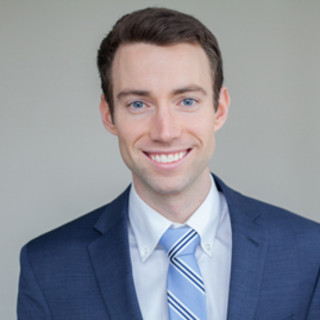
Every rotation in medical school has a reputation, some for short, easy days and others for long, brutal hours. Students' expectations for a rotation are determined by the reputation. The view of the rotation is ultimately determined by how it compared to the student’s expectations at the beginning. Poor expectations can limit the educational experience for students from the get go, and when expectations are reinforced through multiple groups of students, it can create cultures for rotations.
I recently completed a notoriously easy rotation at my school, and because I expected it to be easy, it hampered the learning experience. Most students attempted to leave as early as possible each day, so the residents assumed all students were. My expectations then became to leave early each day, so I limited the opportunity to learn for myself by not being around. It’s always an awkward experience when a resident tells you to go home unprompted, and it often comes across as them wanting you to leave. This rotation has been this way for a few years, so students and residents have reinforced the culture. As more students continue to have the same experience on the rotation, the culture is perpetuated, and all students suffer.
The rotation prior was notoriously difficult, and I had long hours and lots of responsibility. I expected it, so the long days seemed to fly by. I grew as a physician because of the hours spent at the hospital. There were certainly times when the long hours were not educational, but in general, more time spent with attendings and residents translates to more time for questions and teaching. Medical students usually rise to meet the expectations set by residents and attendings. Though the rotation was difficult, I thoroughly read up on my patients, and was prepared every day. Looking back, the rotation was one of my favorites because of how much I learned. There was a sense of accomplishment from the hard work. When I expect to work hard and learn a lot, I do, and the reputation of these rotations is a positive force for education because it met my expectations.
The contrast between the easy and difficult rotations highlights one prevailing fact in medical school: you get out what you put in, and your expectations often determine your experience. Putting in the work to ask informed questions, and spending time with people willing to teach you will enrich your experience. Ideally, this happens in a well-organized environment, but students who want to learn something will. A classmate of mine calculated how much he spent each day on tuition, and put a note on his mirror to remind himself to earn that every day. While I didn’t go to quite that extreme, his brand of self-motivation inspired me to be sure I am getting value out of medical school, because at the end of the day, I am paying to get that education.
Every day in medical school will not be enjoyable nor educational, but most days can be. As graduation approaches and I reflect on my educational career, one of my regrets of medical school is that there were days where I was the limiting factor in my education. Taking more initiative to improve poor learning environments and seek out answers for my questions would have further enriched the past four years. Acquiescing to low expectations inhibited my learning, and is something I will not repeat in residency. You never know when you will need that random bit of information picked up in a specialty completely different than your own. Increasing the expectations for every rotation has the potential to enrich every day of medical school, and ensures that students get the maximum value out training.
Cameron Todd is a fourth-year medical student at Tulane University School of Medicine. He will begin his Otolaryngology – Head and Neck Surgery Residency at Wake Forest Baptist Medical Center in July. When not in the hospital you can find him outside on his bicycle. He is a 2018–19 Doximity Author.






